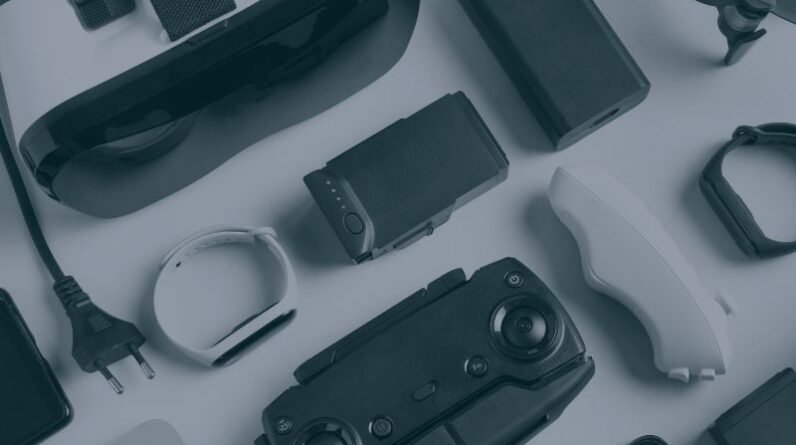
As we make our way through the smart technology era, grasping the realities of this landscape is crucial. Consider the ease provided by voice assistants such as Alexa or Siri, enabling us to control our homes with effortless commands. This convenience comes with a spectrum of pros and cons that require our attention.
We benefit from heightened efficiency and connectivity, yet we face risks like potential privacy violations and an excessive dependence on technology. Our discussion will delve into these aspects, focus on privacy concerns, and look at future trends in smart technology.
The Advantages of Smart Tech
Smart tech brings a plethora of benefits that streamline our everyday activities, boosting both efficiency and convenience.
A key advantage is the capacity for automating numerous features of our homes. Smart home gadgets such as voice assistants empower us to manage lights, thermostats, and security systems with straightforward voice commands. This not only trims down on time but also ramps up energy savings, as we can effortlessly switch off lights or modify the temperature when the room is unoccupied.
Another positive aspect is the option to monitor and control our living spaces from afar. Smart security cameras and doorbells let’s oversee our dwellings no matter where we are, instilling a sense of security and bolstering home defense.
Smart tech also plays a role in promoting our health and wellness. Devices like fitness trackers and smartwatches assist us in keeping tabs on our physical activity, sleep cycles, and heart rate, fostering healthier habits.
Undeniably, the benefits of smart tech are impressive, providing ease, energy conservation, improved security, and health enhancement.
The Disadvantages of Smart Tech
While smart technology provides numerous benefits in terms of convenience and efficiency, it’s crucial to consider the potential downsides of adopting these technologies.
A primary concern is privacy and data security. Smart devices incessantly gather data on our habits, preferences, and even our conversations. This information can be susceptible to hacking or improper use, leading to worries about our privacy and the risk of identity theft.
A dependency on smart technology can also result in the erosion of fundamental skills. For instance, regular use of navigation apps might cause a diminished capability to read maps or navigate without technological assistance.
The swift progress of smart technology can cause devices to become outdated quickly, necessitating frequent updates. It’s vital to balance these disadvantages against the advantages when deciding on the use of smart technology in our daily lives.
Impact of Smart Tech on Daily Life
Smart technology has significantly changed the way we go about our daily activities, making a notable impact on our routines and interactions. Smartphones, smartwatches, and various connected gadgets have granted us immediate access to a wealth of information, entertainment options, and communication capabilities. This transformation has streamlined our lives, enhancing convenience and connectivity. With just a simple touch on a screen, we can get directions, order a meal, or even manage our home environments.
Yet, this growing dependence on smart tech isn’t without its drawbacks. Issues such as privacy concerns, the risk of becoming easily distracted, and a potential for developing an addiction to technology are challenges that must be confronted. It’s crucial for us to strike a careful balance, utilizing smart technology to improve our daily experiences while also being mindful not to let it dominate our lives.
Privacy Concerns With Smart Tech
Privacy concerns tied to smart technology have grown increasingly significant in our contemporary digital society. As we integrate smart devices into our daily lives for their convenience, we should be mindful of the possible privacy risks. Here are four key concerns:
– Data Collection: Smart devices often gather and store personal information, such as habits, preferences, and biometric data. This leads to questions regarding who can access this information and the purposes for which it’s utilized.
– Security Vulnerabilities: The surge in connected devices heightens the potential for hacking and unauthorized access to personal information. This could result in identity theft, financial scams, and breaches of privacy.
– Transparency Issues: Numerous smart devices and applications have complex privacy policies and terms of service that might be difficult for users to comprehend fully. Being aware of the data being collected and its uses is essential.
– Third-Party Sharing: Smart devices might transmit our information to third-party entities for targeted marketing or other reasons. This brings up issues concerning the degree of control we maintain over our personal data.
While smart technology brings numerous advantages, it’s vital to consider these privacy issues and adopt appropriate measures to safeguard our privacy in the digital era.
Future Trends in Smart Technology
As we delve into the evolving landscape of smart technology, it’s essential to explore the future trends shaping our daily interactions with these devices.
One significant trend is the infusion of artificial intelligence (AI) into smart devices, enabling more personalized and intuitive experiences as devices learn and adapt to user preferences and habits.
Another trend is the growth of the Internet of Things (IoT), which connects everyday objects to the internet, allowing them to communicate with one another and leading to increased automation and convenience in homes and workplaces.
We are also witnessing advancements in virtual and augmented reality (VR/AR), poised to transform industries like gaming, education, and healthcare.
However, these developments bring forth concerns regarding privacy, security, and their broader impact on jobs and society. It’s imperative that we proceed with caution and establish ethical guidelines to ensure smart technology enhances our lives without compromising our privacy and well-being.
Conclusion
Smart technology has transformed our daily experiences, offering unprecedented convenience and efficiency. Yet, as we integrate these innovations into our lives, we must confront their potential downsides. Our reliance on these gadgets could undermine our critical thinking skills.
The privacy concerns linked with smart tech are also significant issues to consider. As we move forward, finding the right equilibrium between the advantages and disadvantages of smart technology is essential.







